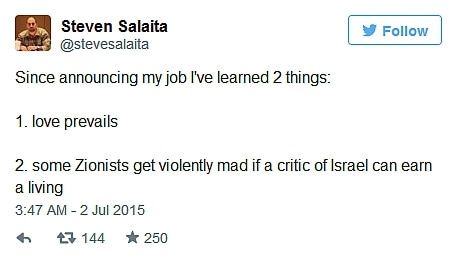Today’s Top Stories
1. AP: International negotiators agreed on a draft document detailing the timing and pace of sanctions relief for Iran. Haaretz fills in more details on the “three-stages” of approval.
The current round of talks would end with an “adoption of the agreement” but probably without a formal signing.
That stage would last about two months, during which the U.S. Senate and Iranian parliament would consider and vote on the deal. (It seems a veto from U.S. President Barack Obama would be needed to overcome Republican opposition in the Senate.)
During the next stage, the Iranians would have to let inspectors from the International Atomic Energy Agency confirm that Tehran was keeping to the deal and had halted its nuclear program for possible military purposes. Only at the end of this process, probably toward the end of this year, would the agreement officially take effect.
This framework is meant to meet a central requirement that Iranian Supreme Leader Ayatollah Ali Khamenei raised two weeks ago: The economic sanctions on Iran must be lifted immediately upon the signing of the agreement.
2. “Sinai Province” the Islamic State affiliate in Egypt, claimed responsibility for three Grad rockets fired at southern Israel on Friday. The rockets landed in open areas of the Negev, causing no damage.
3. Mahmoud Abbas tipped his hand on his preferred successor. Old guard Saeb Erekat will be the PLO’s new secretary-general. Jerusalem Post coverage. But the would-be outgoing secretary-general, Yasser Abed Rabbo, is putting up a fight.
4. CNN: Jerusalem’s Old City “On the Verge of Extinction”: Network includes Jerusalem’s Old City as an example of “25 magnificent structures on the verge of extinction.”
5. Death of Palestinian Stone Thrower Leads to More Headline Fails: These headlines play head games.
 6. Please add your name to this letter to the Public Editor of the New York Times and make your voice heard.
6. Please add your name to this letter to the Public Editor of the New York Times and make your voice heard.
The New York Times must tell the truth about Israel and the UN Human Rights Council
Israel and the Palestinians
• A 17-year-old Palestinian was shot and while stoning an IDF officer’s vehicle. According to the Times of Israel:
The Israel Defense Forces said troops driving a vehicle near the West Bank village of al-Ram, north of Jerusalem, came under a hail of stones and boulders, which shattered their windshield. The soldiers exited the vehicle called to the stone-throwers to stop, firing a warning shot into the air. When the attack continued, according to the IDF, the troops opened fire, injuring one of the attackers.
• The PA arrested 100 Hamas members in a West Bank crackdown.
• Palestinians continued heating up the holy month of Ramadan: We’re talking about stone throwing at the Temple Mount‘s Mughrabi Gate, a forest fire caused by firebombs, plus YNet picking up on the first appearance of pro-Islamic State graffiti in eastern Jerusalem. More at the Washington Post.
• UNESCO added the Beit Shearim National Park to its list of World Heritage sites. Located in the Lower Galilee, Beit Shearim was a Roman-era town now best known for a network of 30 burial caves.

• No surprises as the UN Human Rights Council voted to adopt the Schabas report on the Gaza war. The US was the only country voting against it, though India’s abstention was regarded as ray of light.
Britain, France, Germany, and the Netherlands were among the EU nations voting for the report.
• The Episcopal church rejected efforts to divest from Israel, while the Mennonite church delayed a vote on a similar measure for two years. More at the New York Times and AP.
• Does Israel still “occupy” Gaza? The Washington Post asked Israeli and Palestinian experts.
• A post-script on Professor Steven Salaita (The University of Illinois voided a job offer last year over a series of anti-Israel tweets during Operation Protective Edge). Salaita was given the Edward W. Said Chair of American Studies at the American University of Beirut, where his tweets and academic work will fit right in.

• What’s the big deal about the Jordan River water used for Princess Charlotte’s christening, and how did it get to London? The BBC takes a look at the water from the Holy Land trade.
Mideast Matters
• Reuters: Iran deploys new home-built long-range radar
• If sanctions are lifted, what will Iran do with its $100 billion windfall?
• France set to rush the Iranian market after sanctions relief.
• Wall St. Journal: Arabs fleeing Islamic State goons threaten Kurdistan’s ethnic balance. Click via Google News.
Around the World
• Regarding yesterday’s neo-Nazi rally in London that had Jews worried, the Jewish Chronicle summed it up in 135 characters (including the spaces). Other papers reported a less generous turnout.
About 20 neo-Nazi demonstrators were confronted by hundreds of counter-protesters in a clear show of anti-fascist defiance on Saturday.
• Rioters chant against “Jewish murderers” in Muslim Dutch neighborhood
• Israel signed an $111 million contract with Argentina to upgrade the army’s tanks, and provide technical assistance and training.
• French synagogues batten the hatches after Lyon jihad horror.
Commentary/Analysis
• The UN Human Rights Council voted to adopt the Schabas report. Raphael Ahren and Herb Keinon explain why the consequences for Israel weren’t as bad they could’ve been.
• Worth reading: Vassar College’s Professor Jill Schneiderman lays out how academic boycotts of Israel harm American students after a trip to Israel she arranged for a group of her students was nearly cancelled by the BDS movement.
 • A bigger threat than BDS: anti-normalization
• A bigger threat than BDS: anti-normalization
The anti-normalization movement has called for an end to all interactions between Israelis and Palestinians that do not subscribe to three key tenets: ending the occupation; equal rights for Israelis and Palestinians; and a full right of return for Palestinian refugees. These three tenets are shared with the BDS movement, and, as such, the two movements are joined at the hip. Yet the effects on the ground of the anti-normalization movement are far more serious.
It seeks to police all interactions between Israelis and Palestinians, and, as such, disrupts programs that it perceives as being unaligned with its agenda. This makes life particularly hard for those of us in the “people-to-people” community – who bring Jews and Arabs, Israelis and Palestinians together in school, agricultural, high-tech and advocacy programs or camps.
• What’s in a name? Soeren Kern and Col. Richard Kemp weigh in on UK politicians trying to ban the term, Islamic State.
• Can France really fight Islamic radicalism while indirectly funding the Gaza flotilla, and organizations that support boycotting Israel? Ben-Dror Yemini doesn’t think so.
• Here’s what else I’m reading this weekend:
– Mordechai Kedar: Ramadan terror
– William Jacobson: Israelis don’t like Obama taking risks with their lives
– Elhanan Miller: Sinai terror sends Gaza back to square one
– Elliott Abrams: Terror in Sinai
– Eyal Zisser: Hamas left all alone
– Khaled Abu Toameh: Who is damaging relations between Arabs and Jews?
– Jonathan Tobin: Gaza flotilla brought hate, not aid
– David Harris: UN Human Wrongs Council
– Charles Krauthammer: Iran: The worst deal in US diplomatic history
• Last but not least, a Toronto Star staff-ed calls on Ottawa to do more to help Gaza reconstruction.
Featured image: CC BY-SA flickr/Sascha Kohlmann with additions by HonestReporting; petition CC BY flickr/League of Women Voters; Beit Shearim CC BY-NC flickr/vad_levin; boycott CC BY flickr/Salaam Shalom;
For more, see yesterday’s Israel Daily News Stream and join the IDNS on Facebook.




